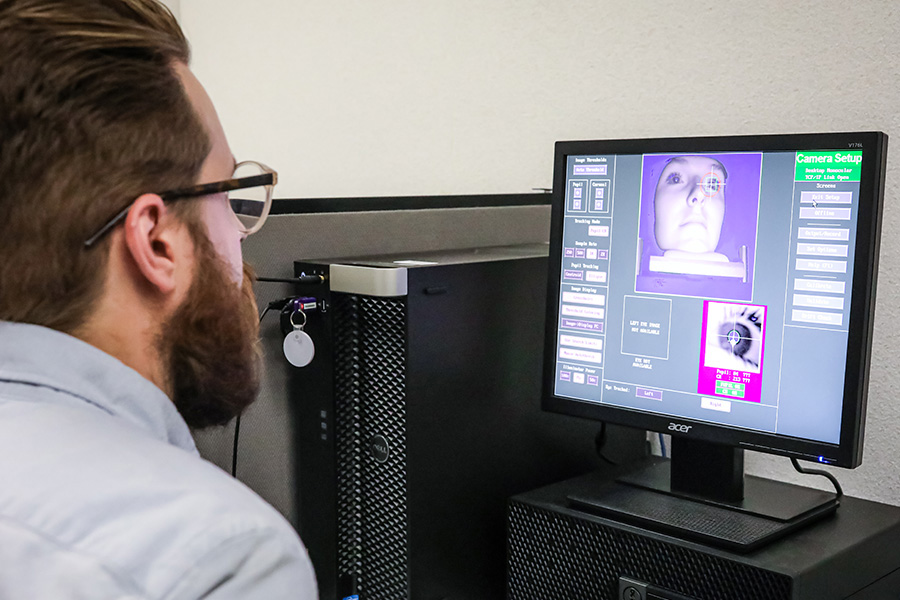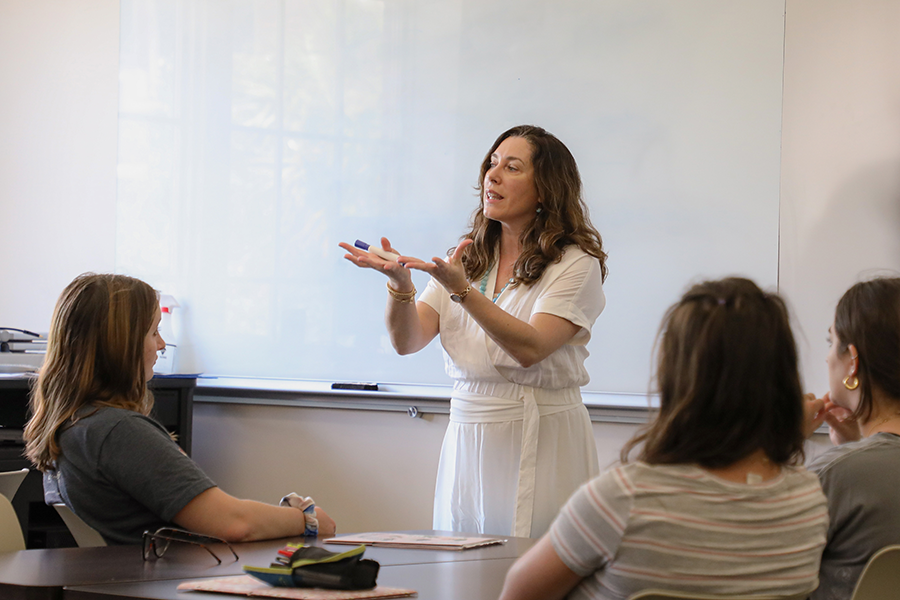
About the Program
Linguistics is the scientific study of language and investigates the sounds (phonetics/phonology), structures (morphology/syntax) and meaning (semantics/pragmatics) in human language. In addition, the field of linguistics explores how humans learn and process one or more languages (psycholinguistics/neurolinguistics/first and second language acquisition) and how they use language in its social context (sociolinguistics). Other subfields within linguistics include language change (historical linguistics) and computer-based approaches to linguistic phenomena (computational linguistics).
Linguists work in several fields such as teaching (linguistics, speech, English, world languages), translation and interpretation, voice or speech recognition software development, literacy programming, curriculum development, data analysis, language documentation and revitalization, U.S. intelligence or foreign service, tech companies like Google, Amazon and Duolingo, just to name a few.
We offer a minor and a major (BA/BS) in Linguistics and a concentration of MA and PhD in Hispanic Linguistics.
UNDERGRADUATE
The program offers both a Bachelor of Arts and Bachelor of Science which consist of 30 credits. Of these, 18 credit hours correspond to six required core courses, and 12 credit hours correspond to electives. We also offer a 12 credit hour minor.
Graduate
The department offers a Master of Arts and PhD in Spanish that allow students to specialize in Hispanic Linguistics. We offer graduate courses in Phonetics and Phonology, Syntax, Sociolinguistics, Language Contact, Descriptive Linguistics, Second Language Acquisition, Heritage Language Acquisition, Psycholinguistics, and Computational Linguistics. We have several labs, including a Language Processing and Eye-tracking lab, a Phonetics lab, a Psycholinguistics lab, and a Second Language Acquisition lab.
Why Study Linguistics
Linguistics is the scientific study of language. In our everyday lives, we are surrounded by language (and sometimes more than one). Linguists seek to understand the underlying properties of all human language by using ‘language’ as data. They conduct their research with monolinguals and bilinguals in laboratory settings or in the field. Linguists investigate how language is acquired in children and adults, how language is processed in the mind and brain, and how language is used in different social settings by individuals and groups. Students majoring in linguistics acquire valuable skills in empirical research design, data analysis, and written and oral communication, all essentials skills that will transfer well to a variety of graduate-level and professional contexts.


